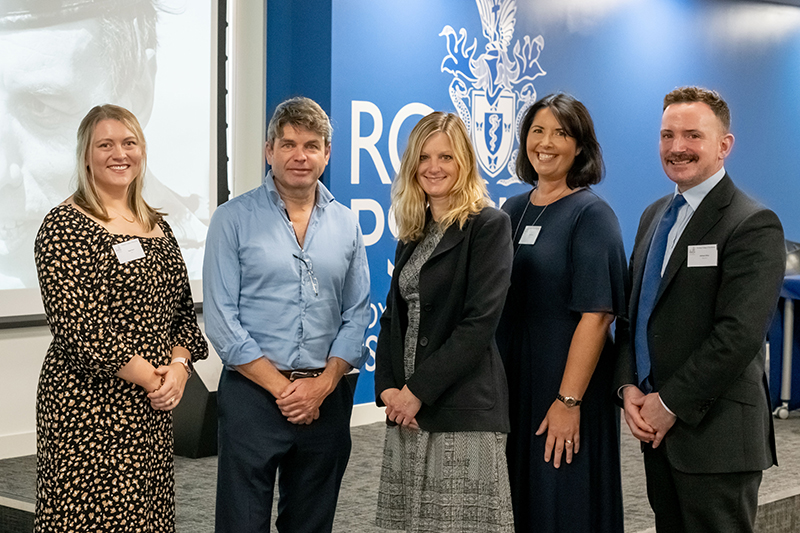This conference was a 2 day in person/live streamed event that hosted 278 delegates. Being a ‘hybrid’ event helped us to flexibly accommodate speakers and colleagues who would not have otherwise been able to attend. We were delighted to welcome international colleagues from various countries around the globe including Australia, New Zealand, Qatar, the Netherlands, France and Singapore. There was a 50/50 split between delegates attending in person or online.
The event offered a great opportunity for trainees to present their work. Thirteen poster presentations were available to view online or in person and 3 oral presentations were delivered on day 2 in the context of a dedicated trainees’ session.

As always, the event covered a number of exciting topics highlighting new research developments and how recent advances could be translated into more effective clinical care.
The event was opened by Dr Lade Smith CBE, President of our Royal College who highlighted current issues and the importance of biological aspects in current psychiatric practice.
The conference particularly advocated for the need to ensure equitable access and highlighted the needs of specific groups that have historically struggled to utilise relevant services. These include the homeless and prison population. Current research on brain injury, suicide, and self-harm in prisons were presented. Brain injury in the Criminal Justice system was the main theme for our newly introduced Lord Sir David Ramsbotham Lecture.
We were also educated on the relationship between cognition and mood exploring related issues including Functional Cognitive Disorder and malingering.
In the context of a selection of seminars to address various educational needs, we were able to hear about the neuropsychiatry of Epilepsy and managing aggression in Huntington’ s disease. We also had a workshop addressing neurological disorder in acute and long Covid-19 and neuropsychiatric issues in paediatric long Covid.
A plenary session covered the theme of neuroscience based advanced treatments for Obsessive Compulsive and Related Disorders. The session explored the conceptualisation of OCD as a neuropsychiatric disorder along with functional neuroimaging and neurosurgical approaches in the management of OCD.
Colleagues who have special interest in medicolegal work, were pleased to know that a plenary session was dedicated to discussing critical issues in brain injury litigation. Furthermore, sleep related disorders in criminal litigation was allocated another full session.
The conference also hosted a “Trainee and New Consultants Group” which supported colleagues new to the field of neuropsychiatry.
Our next conference is scheduled for 12 and 13 September 2024, colleagues are welcome to join us for an exciting and informative event.